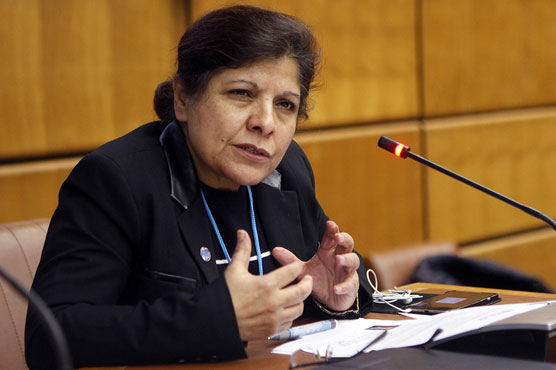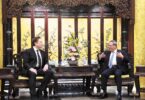The caretaker Minister for Finance Dr Shamshad Akhtar has recently claimed that the government’s steps to stabilize the economy are yielding positive results. According to her, brief measures were taken by the interim government to improve the country’s economic conditions. The national economy is performing well now and there are some initial signs of economic recovery. She said that discussions regarding control on government expenses are currently underway with the IMF, however, no deduction has been made to provincial funds so far. According to the Finance Minister, the Consumer Price Index (CPI) has witnessed a major decline which illustrates that Pakistan has come out of the difficult position.
The caretaker government in collaboration with the Pakistan military undoubtedly took unprecedented administrative and regulatory steps which not only rescued an almost collapsed economy but put the entire house in order in a short time. The government-military combined platform of the Special Investment Facilitation Council (SIFC) did miracles in resetting the trajectory of the derailed economy, reviving new life in national institutions, and revitalizing a ray of hope in the nation, that previously diminished due to ever-rising inflation and a flood of rumors about a possible default of the fragile nation.
The SIFC took up the gigantic challenge of revamping the national economy and charted out a nationwide strategy to bring pivotal reforms in each field and clear the yearslong baggage of each institution including removal of the Kunda system and recovery of bills in WAPDA and OGDCL, curbing money laundering and smuggling of currency, along with putting a cap on bad practices and manipulation of forex market which successfully controlled rupee volatility and brought stability in the national economy. Historically, the SIFC played an important role in restoring investors’ trust in the local market along with attracting and facilitating local/foreign investment in the country. It successfully streamlined bureaucratic processes, eliminated red tape, and resolved issues faced by investors and traders in the country. The SIFC aims to improve the overall investment climate in Pakistan for businesses to thrive thereby providing a conducive environment for businesses, traders, entrepreneurs, and investors to ensure sustainable economic growth and development in the country.
The Special Investment Facilitation Council (SIFC) is currently engaged with several friendly countries including Saudi Arabia, UAE, Bahrain, China, Malaysia Qatar, Kuwait, Turkey, Iraq, and Iran along with engaging overseas Pakistanis to bring investment to the country. The functions being carried out by the most prestigious and powerful platform are the key jobs of certain ministries, and departments in the country who could not deliver to the public due to incapacity, and institutional degradation. Although, the caretaker government with crucial assistance from the SIFC and Pakistan Military has brought the national economy on the track but country’s woes are diverse and problems are multifaceted that merit overhauling of all aspects of our national life. Besides economic volatility, current-day Pakistan faces diverse problems relating to food insecurity, a lack of healthcare and quality education, flourishing terrorism, and poor law and order situation, along with the institutional degradation that practically choked the country at this point.
Historically, the SIFC played an important role in restoring investors’ trust in the local market along with attracting and facilitating local/foreign investment to the country. It successfully streamlined bureaucratic processes, eliminated red tape, and resolved issues faced by investors and traders in the country. However, there is a dire need to revive and fully operationalize the national institutions, policy-making and implementation mechanisms. So these gains could be preserved sustainably in the long term and the country comes out of this vicious cycle of recurrent economic depletions, debt trap and industrial slowdown, once and for all.







